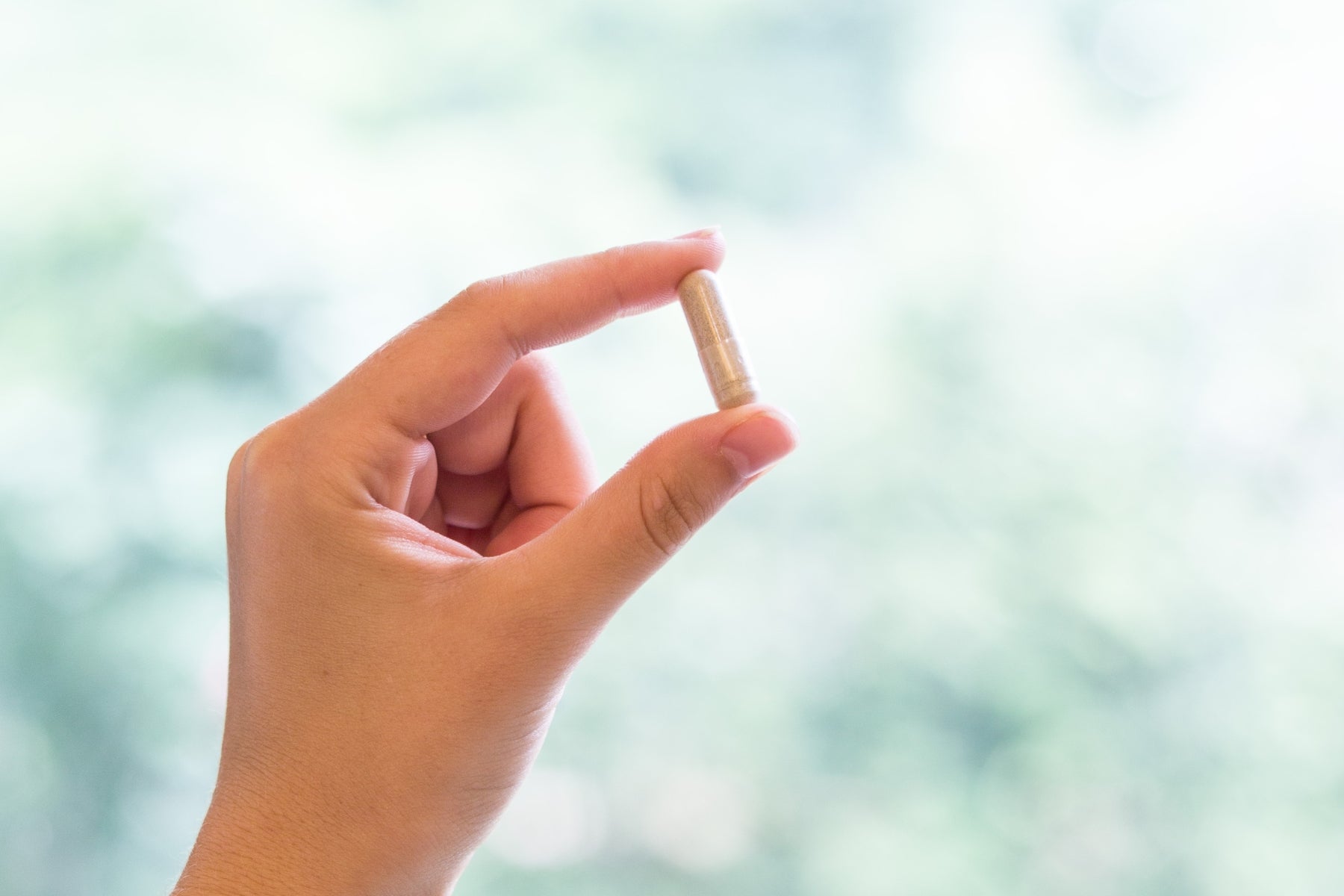
Biotin for Hair: Does It Really Work or Is It Just Marketing? A Complete, Science-Based Guide
Biotin has become one of the most popular ingredients in hair, skin, and nail supplements. Also known as vitamin B7 , it's touted as essential for strong, long, and healthy hair . But is this reputation deserved? In this evidence- based, professional guide, we analyze biotin's true role in hair health and why we decided not to include it in our supplement.
What is biotin and why is it associated with hair growth?
Biotin is a water-soluble B-complex vitamin involved in the metabolism of carbohydrates, fats, and proteins . It is indirectly involved in the production of keratin , the main structural protein in hair.
Foods rich in biotin include eggs, nuts, legumes, fish, whole grains, and some vegetables like cauliflower. With a balanced diet , most people get enough biotin daily.
What does science say about biotin and hair?
Clinical studies linking biotin supplementation with improved hair growth primarily focus on people with biotin deficiency , a rare condition. In healthy individuals, there is no solid evidence to support that taking more biotin improves hair growth or prevents hair loss.
Therefore, the effectiveness of biotin in supplements is subject to the presence of a real, clinically diagnosed deficiency .
Who really needs extra biotin?
Biotin deficiency is uncommon, but can occur in the following cases:
- Prolonged use of antibiotics or anticonvulsants.
- Intestinal diseases that make absorption difficult.
- Excessive alcohol consumption.
- Extreme or very restrictive diets .
- Rare genetic disorders.
Symptoms of deficiency include hair loss, skin rashes, fatigue, and mild neurological disturbances . In these cases, a healthcare professional should be consulted to assess the need for supplementation.
Risks and side effects of unnecessary biotin supplementation
Although biotin is considered safe, indiscriminate supplementation can lead to unwanted effects:
- Interference with laboratory tests (such as thyroid hormones or cardiac markers)
- Acne outbreaks have been reported in connection with its intake in high doses.
- It can generate a false sensation of "hair improvement" without physiological support
Therefore, we do not recommend its use without medical supervision and without a demonstrated need.
Why doesn't our supplement contain biotin?
Our formulation has been developed by professionals in the fields of pharmacy and nutrition, prioritizing active ingredients with real-world evidence of impact on the hair cycle, scalp health, and follicular stimulation.
We have decided not to include biotin because:
- The deficiency is rare
- It does not improve hair growth if the levels are already normal.
- May cause adverse effects in some cases
We opt for responsible and effective supplementation , focused on what the body really needs for optimal hair function.
What ingredients do help hair growth?
Our formula includes active ingredients with scientific backing:
- Zinc: Contributes to the maintenance of normal bones, hair, skin, and nails. Zinc prevents inflammation and promotes a balanced immune response, protecting the hair follicle.
- Copper: Contributes to the maintenance of connective tissue, normal energy metabolism and the protection of cells from oxidative damage.
- Selenium
- Methylsulfonylmethane (MSM) contributes to the formation and regeneration of cartilage, bone tissue and collagen, promoting nutrition and proper functioning of joints, tendons and ligaments.
- Bamboo. A source of silicon, an essential element for the formation of collagen and glycosaminoglycans, structural components of skin and hair. Hair Boost is formulated with silicon derived from bamboo extract.
- L-cystine. An amino acid that helps achieve strong, manageable hair.
- Sulfur-containing amino acids: direct precursors of keratin
- Ashwagandha. It contributes to relaxation and mental and physical well-being, helping to manage stress and anxiety thanks to its adaptogenic properties.
- Anagain
- Vitamin C
- Vitamin E
- Vitamin B6
These ingredients act synergistically, providing an ideal environment for the growth of strong, healthy hair and you can find them in our new hair supplement Hair Boost.
Conclusion
Biotin can play a role in hair health when there is a real deficiency. Its widespread use as a solution for hair loss without a deficiency is not supported by science. In our supplement, we focus on an effective, safe, and evidence-backed formulation, focusing on what really works for scalp health and hair growth.
Frequently Asked Questions (FAQ)
Is it bad to take biotin if I don't need it?
It's not necessarily dangerous, but it can cause side effects such as acne or interfere with clinical tests. It also won't provide any benefits if your levels are normal.
Can I tell if I have biotin deficiency?
Yes, with a blood test ordered by a doctor. Supplementation is not recommended without this diagnosis.
What alternatives to biotin are there for growing and strengthening hair?
Ingredients such as zinc, copper, selenium, essential amino acids and plant extracts such as Anagain TM with action on the scalp have shown greater effectiveness when there is no vitamin deficiency.
Does biotin help stop hair loss?
Only in cases of deficiency. In people with adequate levels, there is no evidence to support its effectiveness in stopping hair loss.


Leave a comment
This site is protected by hCaptcha and the hCaptcha Privacy Policy and Terms of Service apply.